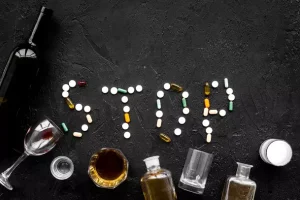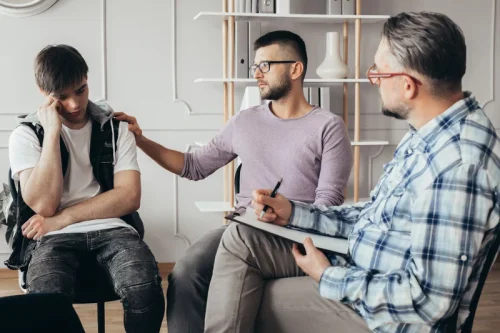
Certain medications and types of antidepressants include stimulants to assist in getting a person back to their normal daily activity. You might notice certain times of the day or being around certain people will make you feel more anxious or more depressed and want to drink more. Noticing these moments can help you make a plan for different ways to cope. Drinking alcohol excessively can also get in the way of other activities, your relationships, and your self-esteem, which can further affect your mental health. By Sarah Bence, OTR/LBence is an occupational therapist with a range of work experience in mental healthcare settings.

You drink alcohol to cope
- Taking some time for productive relaxation can also help ease feelings of depression.
- If you rely on alcohol to cover your anxiety, you may soon find yourself drinking more and more to relax.
- This is especially true for depression, and the reasons are often complex.
- Either way, strong mental health support makes a big difference in overcoming depression and alcohol.
- Alcohol can significantly worsen depression, leading to a harmful cycle of dependency and deteriorating mental health.
- Depending on your situation, it may be wise to locate and be in touch with a treatment center in case one is needed immediately.
If you are concerned about how alcohol may be impacting your life, the best thing you can do is talk to your doctor. Research tells us that people who regularly drink experience reductions in folic acid; a member of the B-9 vitamin family. That’s important to know because a lack of folic acid can cause your brain to age faster. But just as sure as the sun rose, the depression was still there. At some point, it dawned on Mike that his use of alcohol might be unhealthy.
How Alcohol Makes Your Depression Symptoms Worse
Holistic activities are intended as supplemental support, and not as a direct treatment for depression. However, when combined with therapy and medications, the impact can be quite significant in a short period of time. If you don’t have alcohol dependence, you can stop drinking alcohol. Most people will feel better in a couple weeks, and the depression will get better. If you still have depression after 4 weeks of not drinking, talk to your doctor.

Treating Alcohol Addiction and Depression Simultaneously
But regularly drinking more alcohol than these guidelines recommend can pose a number of health risks, including depression. Taking some time for alcohol and depression productive relaxation can also help ease feelings of depression. It’s more likely to worsen negative mood states, along with physical health.
tips to cut back on drinking
Increased anger might lead you to pick a fight with a loved one, for example, while extreme sadness or self-loathing could lead to intense depression symptoms. If you tend to rely on alcohol to ease anxiety in social situations, for example, you might never address the underlying causes of your discomfort. Namely, it interferes with the release of neurotransmitters linked to mood regulation, including serotonin and norepinephrine. In small to moderate amounts, alcohol can temporarily lift your spirits and help improve your mood. Alcoholics anonymous (AA) and alcohol treatment centers offer classes and support group meetings. In these, you can also find support from others in the same situation.

This can mean joining a support group, such as Alcoholics Anonymous or SMART Recovery. It can also mean finding a personal therapist, or a recovery coach. It is estimated that 1 in 10 people in the US has experienced a major depressive episode and only 50% of those individuals decide to seek treatment. Depression and alcohol use are a dangerous combination that is best treated with support from professionals and with support from loved ones.
International Patients

Similarly, Crum, Brown, Liang, and Eaton (2001) demonstrated that depressed female problem drinkers were twice as likely to become daily drinkers compared with nondepressed female problem drinkers. Depressed male problem drinkers were three times as likely to become daily drinkers compared with their cohort of nondepressed problem drinkers (Crum et al., 2001). This article briefly reviews some of the recent https://ecosoberhouse.com/ literature on the complex interaction between alcohol dependence and the longer lasting anxiety or depressive disorders. The interactions between alcoholism and these disorders are evaluated by posing a series of questions, and the reader is encouraged to review the articles cited in the reference list. In keeping with the guidelines of Alcohol Health & Research World, review articles are emphasized.
